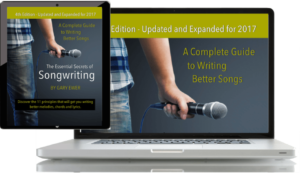There’s a analogy for writer’s block that I’ve seen, written by Patrica Huston, MD, in the January 1998 edition of Canadian Family Physician, that succinctly describes what happens when we can’t write anymore:
Medical writer and editor Elizabeth Whalen suggests that writer’s block is an example of a “right brain-left brain” conflict. The right, or creative, side of the brain, seeks to create (in this case, write). This induces the left, or analytic, side of the brain to anticipate all the problems that this action could entail, causing it to go into “overdrive” and inhibit the ability to write. An analogy might be someone who wants to drive a car on a trip. Although the car is in gear and the foot is on the gas pedal, the person is not going anywhere because anticipatory anxiety has compelled the driver to put on the emergency brake.
(Canadian Family Physician VOL 44: JANUARY 1998)
I love that analogy, because it captures the mixture of purposeful intent — “I want to write!” — with the all-too familiar fear that can be best described as having the emergency brake suddenly engaged: “I’m afraid to (or simply can’t seem to) write!”
 Words and music need to act as partners in a song, but how do you make sure your melody is helping your lyric? That’s what Chapter 5 of “The Essential Secrets of Songwriting” deals with. Get it as part of the 10-eBook Bundle, or purchase it separately.
Words and music need to act as partners in a song, but how do you make sure your melody is helping your lyric? That’s what Chapter 5 of “The Essential Secrets of Songwriting” deals with. Get it as part of the 10-eBook Bundle, or purchase it separately.
I’m not a psychologist, but in the reading and research I’ve done on creativity (see my book “Beating Songwriter’s Block: Jump-Start Your Words and Music“), particularly as it pertains to a creative block, the assigning of analytical and creative abilities to the left and right sides of the brain may not be the current theory.
But that doesn’t matter for the purposes of this discussion. What does matter is how to solve that uncomfortable feeling of wanting to write, but not being able to put anything together.
Mild Writer’s Block
Most people will encounter a mild form of writer’s block on a semi-regular basis, and it’s the kind that typically hangs around for a few days before you get yourself sorted. Having a mild creative block shouldn’t distress us too much, but what can you do to solve it? Some ideas:
- Rethink your expectations. If you expect to write a fully complete song every time you sit down to write, your expectations are, I think most would agree, unrealistic. Scale your notions of success back a bit. It’s all right to decide to work only on a bit of lyric, or a verse melody, or simply to try getting a bridge section working.
- Make a specific plan for your session. Start your songwriting sessions with specific goals for that day. Don’t obsess over what you think you need to get done, but make a list of what you think is reasonable for the time you’ve set aside.
- Think positively about your work. At the end of every session, look at what you’ve done, and give yourself positive feedback. Don’t fixate on what you didn’t get done, but focus rather on what you think you did well.
Moderate Writer’s Block
A moderate block is the kind that produces more anxiety, mainly because it feels like it goes on for a longer period of time. Several weeks of feeling stunted can take an emotional toll, and your emotional response to it makes it all the more difficult to solve.
If you’ve been dealing with this kind of block for several weeks or more, try these ideas:
- Brainstorming/Speedwriting. This can take many forms, depending on the specific issues you’re having. If you find lyrics are suddenly hard to write, try a brainstorming (or speedwriting) session, in which you write as quickly as you can, resisting the temptation to assess and evaluate as you go. Just get anything written. Yes, you can learn to be creative in this way. Try speedwriting melodies as well.
- Cut down on improvisation, and get writing sooner. If you are the kind of writer who likes to noodle around with the guitar, playing chord progressions until something sticks, I’d recommend getting to the writing stage sooner. Improvising is fine, and it can be an important part of a good songwriting process, but the longer you put off actually getting something written down, the more likely it will be that writer’s block will grab hold.
- Talking to others. Sometimes talking it out with a fellow songwriter can do wonders for calming your inner creative self, and giving you the assurance that everyone deals with this from time to time. Other songwriters may have solutions for you that you’ve never considered before, but I think the best aspect of talking is simply the confidence you get that a creative block can be solved.
Severe Writer’s Block
How do you know you’ve got a severe case of writer’s block? To me, the main characteristic of a severe case is that it makes you doubt that you ever were a songwriter in the first place.
This can be quite debilitating, even depressing, and has a way of making you reevaluate your life in rather unpleasant ways.
I have a feeling that the idea that you’re not really a songwriter — that you’re actually some kind of “pretender” — is very likely not true. But it can feel that way, can’t it? When you sit down, day after day, with nothing good to show for your efforts, you can wonder if you ever were actually a songwriter.
In the article I cited at the beginning, Dr. Huston suggests therapy. You’re probably not going to go that route, but just as with a moderate block, talking to your songwriting partners and acquaintances can help you calm down and relax more, and that’s going to be an important part of solving this.
The other activity I would recommend, for any version of writer’s block, is to immerse yourself in other areas of creative life. If songwriting has been frustrating, concentrate more on playing, perhaps writing shorts stories or poetry, or develop your abilities in another creative field altogether, such as visual arts, dance, sculpture, and so on. Many musicians do this (Tony Bennett, Joni Mitchell, for example). These activities will have a positive effect on each other, and most composers find that their songwriting abilities reassert themselves, given time.
The best way to keep yourself from encountering any kind of severe writer’s block in the first place is to:
- Plan your songwriting sessions.
- Scale back your expectations for those sessions, and…
- Talk regularly to other songwriters about their own process and approach.
 Written by Gary Ewer. Follow Gary on Twitter.
Written by Gary Ewer. Follow Gary on Twitter.
 “Hooks and Riffs: How They Grab Attention, Make Songs Memorable, and Build Your Fan Base” shows you how a good hook can make the difference between songwriting success and failure. With great examples from pop music history.
“Hooks and Riffs: How They Grab Attention, Make Songs Memorable, and Build Your Fan Base” shows you how a good hook can make the difference between songwriting success and failure. With great examples from pop music history.










